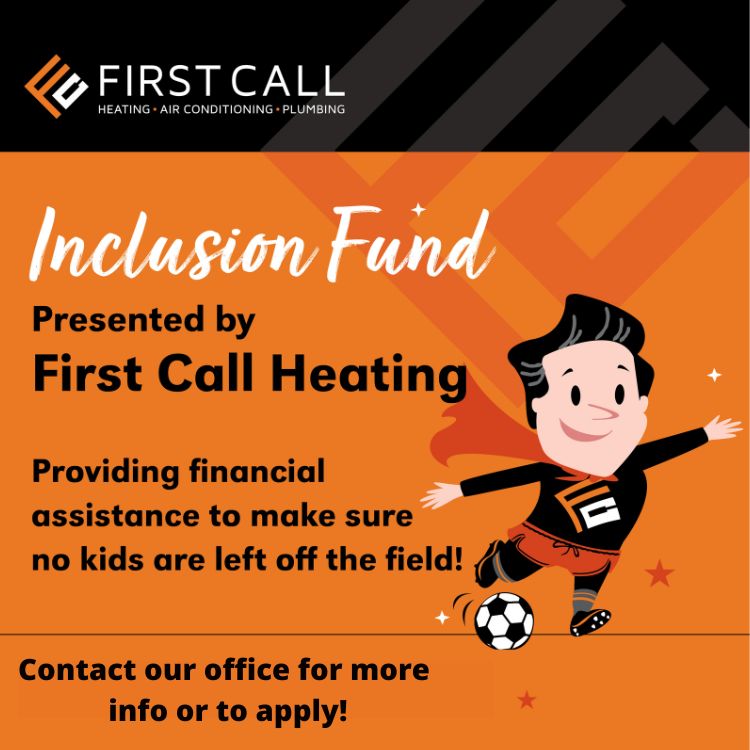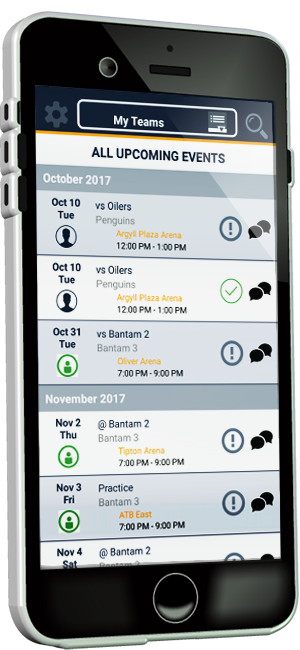FAQ
General Questions:
Q: What is the difference between Recreational and Competitive programs?
A: Our recreational program (Tier 4) is built for players as an introduction to the sport. The schedule is less intensive, allowing for multi-sport athletes, extra-curricular activities, or just a basic soccer experience. Our competitive program (Tiers 1/2/3) is built for athletes who want to commit and develop in the sport of soccer, with a more intensive training schedule and more focus being put into tournaments and league-play. All our programs are built around the core tenets of Joy, Player Agency, Community Connection, and Skill Development.
Q: What equipment does my child need to play outdoor soccer?
A: All players require their own Outdoor soccer shoes and shin pads. Players are provided with a jerseys, shorts and socks.
Q: What is Clubhouse?
A: Clubhouse is an opportunity to engage in free play and build individual soccer skills at our SPDSA Facility. This is a free, after-school drop-in program which runs Monday to Friday from 3pm-5pm every school day. Bringing friends, siblings and/or parents is encouraged! Our facility address is 170-3001 Buckingham Drive, Sherwood Park.
Assessment Questions:
Q: Who needs to attend assessments?
A: Phoenix FC assessments are only for those who wish to play in the Phoenix FC Competitive Program. Teams in the Phoenix FC Competitive Program will play in the Edmonton Minor Soccer (EMSA) League.
Q: When should I register for Phoenix FC?
A: If you're looking to commit and play for Phoenix FC in the Competitive Program (U8-U19), we recommend registering ahead of time to take advantage of our early-bird pricing options. Program prices and details can be found on our home page, just below our logo.
Q: Do I have to register for Phoenix FC to attend assessments?
A: Short answer - no. We offer a fillable form to attend assessments for those wanting to try-out, but not yet ready to fully commit to playing for Phoenix FC. Details can be found on the "Assessments" article on our home page. If selected for a Phoenix FC Competitive team, players that have completed the form above will need to complete RAMP registration to confirm their spot.
Q: What if I'm registered in a Recreational Program?
A: If you are registered in a Phoenix FC Recreational Program, you do not need to attend assessments. However, if you are wanting to attend assessments just to see how you fare, you can sign up using the "Assessment Only" form on the "Assessments" article on our home page. If you are selected for a Competitive team, we will transfer your Recreational package to a Competitive package.
Q: What happens at assessments?
A: Phoenix FC assessments are designed to lessen the stress and anxiety placed on athletes around the assessment window. Assessments consist of playing small-sided games (3v3/4v4/5v5) in order to generate lots of touches on the ball, keep a high tempo of play, and simulate game environments that allow athletes to real-time problem solve and strategize. Phoenix FC technical staff and assessors will move players around to different fields in order to see how they play with, and against, their peers. This format allows for athletes to focus on what they do best - playing hard, being brave, and putting in their best effort! All parents have to do is relax and just watch.
Parents have a huge impact on the mental and emotional well-being of their athlete. During the assessment window, remember, - I love to watch you play!
Q: What happens if I don't make the team?
A: All we can ask for is your best effort. If you aren't selected for a Phoenix FC Competitive team, there are the following options:
1) Play for Phoenix FC in our Tier 4 Recreational League
If you are registered in RAMP under a Competitive package, we will be able to transfer your package to our Recreational Program. We also recommend notifying your coach and Phoenix FC technical directors that you are hoping to be a trialist option.
2) Issue a refund on registration
If you are registered in RAMP under a Competitive package, we will be able to issue you a refund in accordance with our refund policy.
Player Questions:
Q: Can I play with my friends?
A: When building our teams in our Recreational program, we will take reciprocal friend requests into account.
Q: Assessments are scary! What if I don’t show my best at the few chances I have to tryout for a competitive team?
A: Our program is built to judge players by their body of work over the course of the full season. We do this by looking at Trace Camera Highlights, practices and trainings, coach recommendations, and technical director recommendations. We have also implemented a Trialist program. If you are interested in the possibility of playing at a higher tier or older age group. Assessments are just a small piece to the overall picture. Try your best!
Q: What happens if I tried out for a competitive team but didn’t make the cut?
A: Don’t sweat it! The best thing you can do is keep practicing and make use of things such as Clubhouse and Habit Trackers. Consider registering for Academies, camps, and clinics if you want additional coached sessions. We have also implemented a Trialist program. If you are interested in the possibility of playing at a higher tier or older age group. Most importantly, we will always have a team for any player that wants to play soccer.
Q: Let's talk about game minutes.
A: Players on the recreational side generally get equal playing time, providing they come to practice and contribute positively to the team (attitude). On the competitive side, players get significant playing time (minimum 40% of the game), but more minutes can be earned through extra hard work, great team spirit, extra practice on own and terrific appetite towards learning.
Parent Questions:
Q: What are the costs for my program?
A: Costs are dependent on the level of programming chosen. Click on the program outline for your desired program to view the cost breakdown.
Q: Which days of the week do we play?
A: We set tentative days of play for each program before the season. Depending on the number of registrants, we may need to make some adjustments to days of play or add days in the case of odd numbers of teams. For competitive programs, game days are set by EMSA and while we set initial training schedule based on their tentative days, we may need to make adjustments once EMSA shares their verified schedule.
Q: When will we hear about our child’s team/from our coach at the beginning of the season?
A: We try to get rosters set and shared with coaches at least one week prior to season start. Each team’s coaching staff will be determined after the assessment period is over and teams have been assigned.
Q: What are EMSA fees?
A: Edmonton Minor Soccer Association (EMSA) fees apply only to our Competitive Program. EMSA fees are league fees that we need to pay to play against other teams in the Edmonton area. The exact cost of these fees is determined each season by EMSA.
Q: Define "athletic development" and "mental fitness".
A: Athletic Development is the overall development of the physical body, functional strength, endurance, repeated sprint ability, flexibility, agility, and balance. Injury prevention is an added focus of Athletic Development. Mental Fitness will be delivered through workshops, either online as a group or as a recording. Topics may include “Building of Confidence”, “Reaching your Potential”, “Visualization”, “Goal Setting and the use of the Habit Tracker”, and more!
Q: What is cohort training and how does it benefit my player(s)?
A: Cohort Training is a practice session consisting of at least two teams within an age group (example U13 Team 1 and U13 Team 2). These sessions are coach-led with a member of Technical Staff helping to run these sessions. The benefits of the Cohort Training Model are that it creates an inspired environment, people work together, learn from each other, and it builds the idea of community and togetherness under the Phoenix badge.
Q: Let's talk about game minutes.
A: Players on the recreational side generally get equal playing time, providing they come to practice and contribute positively to the team (attitude). On the competitive side, players get significant playing time (minimum 40% of the game), but more minutes can be earned through extra hard work, great team spirit, extra practice on own and terrific appetite towards learning.
Q: How can I become more involved with my player’s team if I’m able to?
A: We love it when parents are engaged with their kids! We offer many volunteer opportunities throughout the year with our tournaments, events, and general upkeep of our facility. Clubhouse is a great way to get involved with your kid’s soccer experience by joining them on the field! Get out and play!
Coach Questions:
Q: How do I become a volunteer coach?
A: Thanks for your interest in coaching! We appreciate our volunteers! Follow the steps below:
- CRC with VRC must be completed. Get a copy of a letter from the club.
- Respect in Sport
- Complete the age appropriate online NCCP course
- Complete the "Coaching Soccer in Canada" module
- Complete the "Understanding the Rule of Two" module
Q: I’ve never coached before, and I may not know the sport at all. Can I still coach a team?
A: Of course! We offer many supports including curriculum, on-field mentorship with directors, online resources coaching community shared in Google Classroom, coaching courses, junior coach support, and a ton of resources on our website.
Q: Are there any perks associated with coaching?
A: Apparel/coach honorarium are available. Personal growth, and growth within the role is an important aspect. Coaching can be a very rewarding experience. At Phoenix FC we aim to create the best possible environments for players AND volunteer coaches through ongoing support and education.
Q: What is cohort training and how does it benefit my players?
A: Cohort Training is a practice session consisting of at least two teams within an age group (example U13 Team 1 and U13 Team 2). These sessions are coach-led with a member of Technical Staff helping to run these sessions. The benefits of the Cohort Training Model are that it creates an inspired environment, people work together, learn from each other, and it builds the idea of community and togetherness under the Phoenix badge.
Q: Where can I find club philosophy and vision that associates with how I coach a team?
A: You can find all of this on our website as well as the “Coaches’ Corner” Google Classroom. Our 4 Pillars of coaching are based on what young athletes consider fun, joyful, and what keeps them in the game. The 4 Pillars are:
- Hard Work,
- Positive Team Spirit,
- Positive Coaching (“Catch them doing well”)
- Learning and improving
Q: Let's talk about game minutes.
A: Players on the recreational side generally get equal playing time, providing they come to practice and contribute positively to the team (attitude). On the competitive side, players get significant playing time (minimum 40% of the game), but more minutes can be earned through extra hard work, great team spirit, extra practice on own and terrific appetite towards learning.
Q: Do I have to do this all by myself? How do I get help?
A: Sessions will be provided by the club, including short animation videos. Ongoing Coach education is provided through Coaches’ Corner Google Classroom and workshops (on field and online) are also part of the offering. We encourage each team to have multiple parents involved to share the work and the experience. Successful kids have positively involved parents or guardians.
Have a question that's not listed? Please email office@spdsa.net and we'll be happy to help you out!





